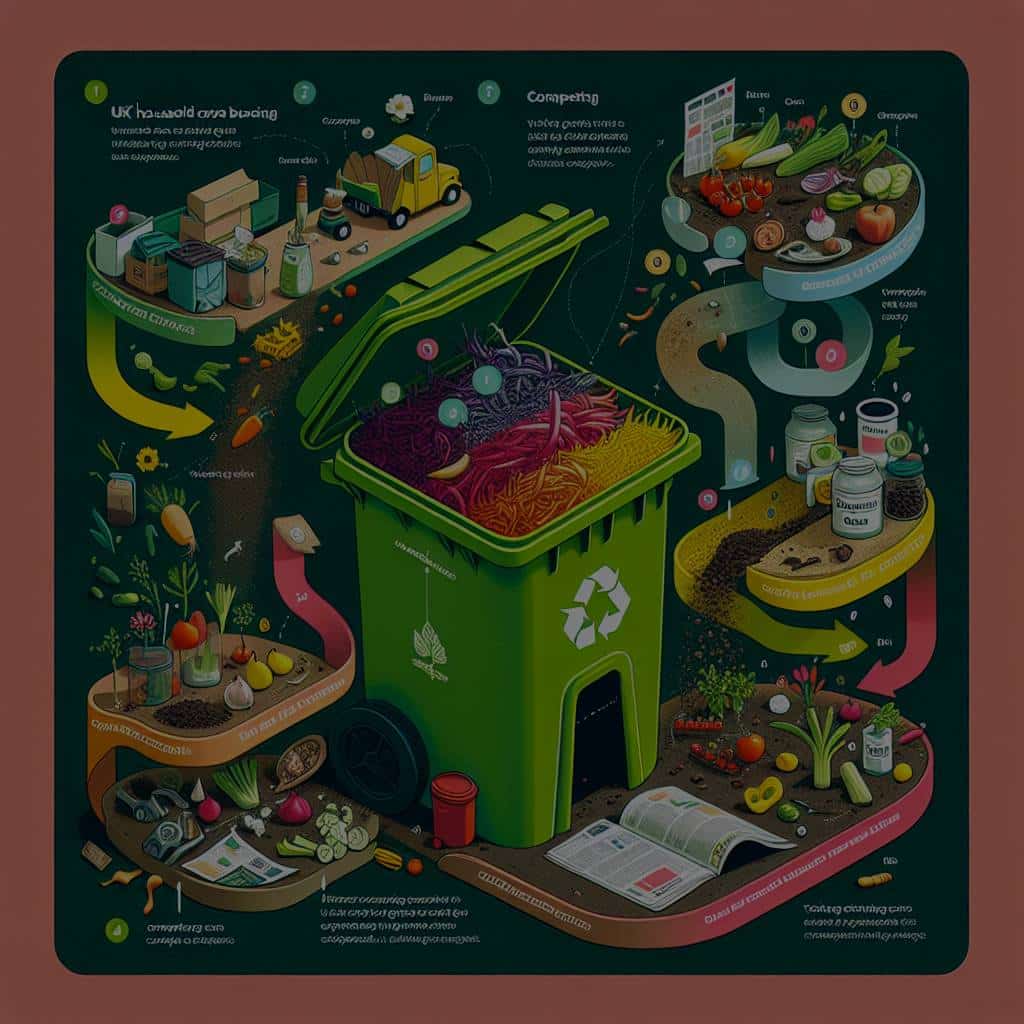What Are the Latest Innovations in Composting for UK Households?

The conversation about waste management and sustainability has never been as poignant as it is today. With an increasing awareness on the environmental damages caused by non-biodegradable waste, more and more people are seeking efficient ways to recycle and reuse. One such sustainable method that has gained popularity is composting.
Composting is the natural process of decomposing organic waste. It is a great way to reduce waste, while also creating nutrient-rich soil for the garden. For many UK households, composting has become an integral part of daily life. Technology and innovation have paved the way for improvements in composting processes, making it easier and more efficient than ever before.
Cela peut vous intéresser : What Are the Benefits of Forest Schooling for UK Children?
Exploring the Basics of Composting
Before delving into the latest innovations in composting, it’s beneficial to understand the basic process and why it’s important. Composting involves the controlled decomposition of organic materials such as fruit and vegetable peels, leaves, and grass cuttings. In the right conditions, these materials will turn into a dark, crumbly substance resembling fertile garden soil, which can be used as an excellent soil conditioner.
Arguably, the most important aspect of composting is the balance of green and brown materials. Green materials such as fruit and vegetable scraps provide nitrogen, while brown materials like dried leaves and branches provide carbon. This balance ensures efficient decomposition, resulting in nutrient-rich compost.
A découvrir également : How Can Community Solar Projects Benefit UK Neighbourhoods?
Household Composting Innovations
Innovation has always been a driver for change, and composting is no exception. The latest composting innovations are designed to make the composting process smoother and more effective for UK households.
A key breakthrough is the design of specialised compost bins that facilitate faster decomposition. For instance, there are now bins available that can turn kitchen waste into compost within 24 hours. These bins utilise controlled temperature, aeration, and moisture to speed up the composting process.
Another noteworthy innovation is the development of compostable packaging. With the increase in home deliveries, packaging waste has become a significant concern. Compostable packaging is made from plant-based materials that can be composted along with your food scraps, significantly reducing packaging waste.
The Role of Technology in Composting
With the digital era stretching its arms into all facets of life, composting is no different. The use of technology in composting can make the process more efficient, less time-consuming, and more accessible for those new to composting.
For instance, smart composters are becoming a common sight in UK households. These composters are equipped with sensors that monitor temperature, moisture, and carbon-to-nitrogen ratio in real-time, ensuring optimal composting conditions at all times. Some even provide alerts and recommendations through an app on your smartphone.
In addition to smart composters, there are now various apps available that offer guidance on the composting process. From indicating what can and can’t be composted, to providing tips on maintaining the right balance of materials, these apps are making composting more user-friendly.
Community-Supported Composting
While composting in individual households is crucial, innovations in community-supported composting are also making a significant impact. Composting on a larger scale not only has the potential to manage a larger amount of waste, but it also fosters a sense of community and shared responsibility for the environment.
A notable example of this is the rise of community composting schemes. In these schemes, community members can contribute their kitchen waste to a central composting site. The compost produced is then distributed back to the community for use in local gardens and green spaces.
There are also innovative projects like composting collection services. Much like traditional waste collection, these services collect food waste from households, but instead of sending it to a landfill, the waste is composted. This is particularly beneficial for those who lack the space or time for composting at home.
The Future of Composting
The future holds promising possibilities for composting. As research and technology continue to evolve, we can expect to see further innovations in composting methods and equipment, as well as increased accessibility and efficiency in composting processes. The rise of composting is a clear testament to the shift towards more sustainable lifestyles, and these innovations are making it easier for everyone to play their part.
Advanced Composting Equipment and Guidelines
As we move forward, new and improved equipment and guidelines are being developed to make the composting process more efficient and accessible for UK households. These improvements not only simplify the process but also ensure the compost produced is of the highest quality.
One such advancement is the introduction of aerated compost bins. These bins are designed with a series of ventilation holes that allow for better airflow, speeding up the decomposition of organic waste. This design eliminates the need for turning the compost pile, making the process less labour-intensive.
Moreover, to help UK households make the most of their composting efforts, comprehensive composting guidelines have been established by local authorities. These guidelines provide clear information on what types of food and garden waste can be composted, how to maintain the right composting conditions, and how to correctly use the compost produced.
Composting guidelines also stress on the importance of turning the compost heap regularly to ensure the organic matter decomposes uniformly. They also highlight ways to handle common composting problems such as unpleasant odours, slow decomposition, and the presence of pests.
Impact of Composting on Environment and Waste Management
Composting plays a crucial role in waste management by reducing the amount of food and garden waste that ends up in landfills. When organic waste is sent to a landfill, it decomposes anaerobically (without oxygen), producing methane, a potent greenhouse gas. Composting, on the other hand, is an aerobic process (with oxygen) and produces a much smaller amount of greenhouse gases.
Furthermore, composting helps to reduce the dependence on synthetic fertilisers. The compost produced can be used as a natural fertiliser, which not only enriches the soil with essential nutrients but also improves its structure and water-holding capacity. This leads to healthier plants and reduces the need for water and chemical fertilisers.
Another environmental advantage of composting is that it helps to combat soil erosion. The organic matter in compost improves soil structure, making it more resistant to erosion. This is particularly important for areas with steep slopes or heavy rainfall.
Through composting, UK households are not just managing their waste sustainably but also contributing to environmental conservation. With the innovations in composting equipment and guidelines, it has become easier than ever to create good compost from organic waste.
Conclusion
The rise of composting among UK households marks a significant shift towards sustainable living. By transforming kitchen and garden waste into valuable compost, households are reducing their impact on the environment and contributing to waste management. From advanced compost bins to community-supported composting schemes, the innovations in composting have made it an accessible and effective practice for all.
As we look forward to the future, we can expect to see more advancements in composting technology and practices. This, coupled with the commitment of UK households, will ensure that composting continues to play a vital role in waste management and environmental conservation.
It is essential for everyone to recognize the importance of composting and the role it plays in fostering a sustainable future. With technological advancements and ongoing efforts from local authorities and communities, composting has become more than just a trend – it’s a way of life. Together, we can make a difference for our planet through the simple act of composting.
